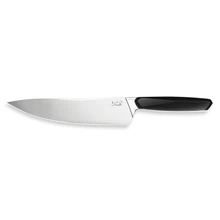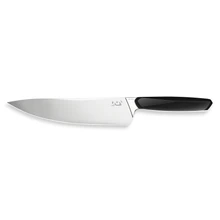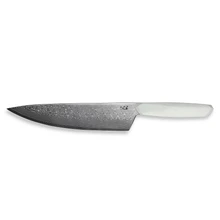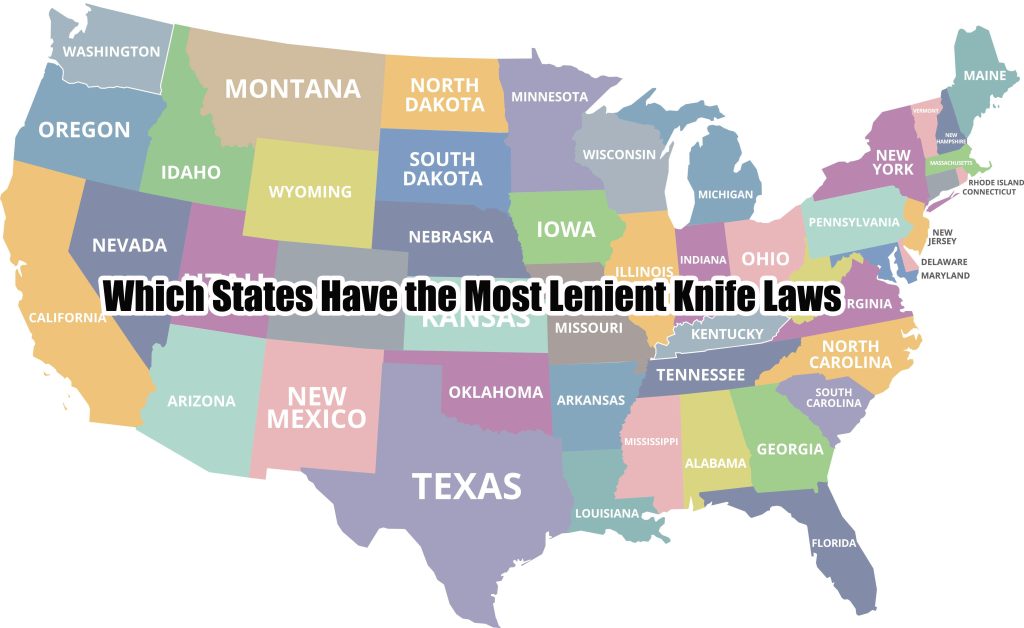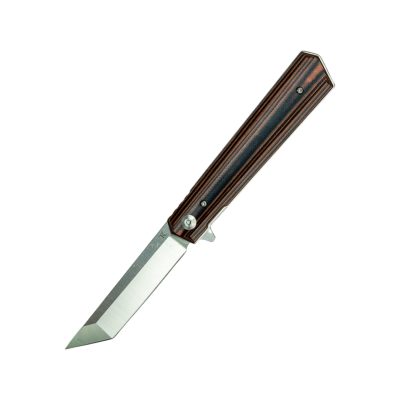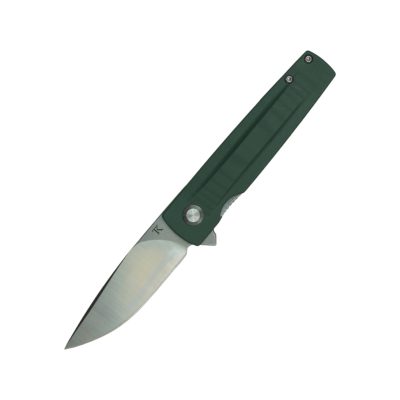Those who have remained abreast of the legal and regulatory issues surrounding knives know that you don’t want to get caught carrying an illegal blade by law enforcement — and that, unfortunately, what separates lawful and unlawful isn’t always self-evident to the average Joe or Josephine. Consider a 2016 case reported on by New York’s WNBC. Electrician Walt Seager, who worked for the Department of Education, was arrested for carrying a folding knife that he used to strip wire. Similarly, LA Weekly reported how award-winning check Nate Appleman came under legal scrutiny for carrying a tool he characterized as “a pocket knife that’s two inches long that I used to cut boxes at work.” The great irony of these situations is that many of the very knives that landed uninformed individuals in legal trouble are freely available in The Big Apple. In fact, the New York Daily News noted that “the law results in New Yorkers who work in construction and other blue-collar jobs getting arrested for carrying an indispensable tool for their jobs.”
Rather than trying to explore every nook and cranny of a byzantine bureaucracy, many knife enthusiasts would prefer to live somewhere with more agreeable laws. In this article, we will explain what makes a state knife friendly and which states have the freest blade-related regulations.
What Makes a State's Knife Laws Lenient?
Which States Have the Most Lenient Knife Laws?
It’s one thing to speak in generalities about laws and quite another to talk about concrete realities. While nothing in this article should be considered legal advice, this section ought to provide you with some general information regarding the freest states when it comes to knives. For more information, please visit AKTI’s State Knife Laws page.
Without any further ado and in no particular order, the states with the most lenient knife laws are …
As you have likely surmised, even though there are only a small number of standard knife cuts, few blades can excel at all of them. This is especially true when it comes to serrated edges. In this section, we’ll discuss the very real advantages of serrated knives and some use cases where they simply can’t excel.
Kansas
While discussing the knife laws of Kansas, allow us to point out a pattern that will soon become apparent, if it isn’t already: Most of these states we’ll discuss here have preemption, place few to no restrictions on any specific category of knife, and allow you to carry them both openly and concealed. Kansas’ laws adhere to all of these stipulations and more besides. The Sunflower State also doesn’t restrict residents from owning disguised knives, non-detectible knives (e.g., non-metallic knives), gravity knives, automatic knives, and daggers. But residents cannot own shuriken (i.e., throwing stars) or ballistic knives (i.e., knives that shoot a blade like a bullet). Felons cannot own firearms, dagger-style blades, or switchblades.
Texas
For many years, Texas was a somewhat more restrictive state when it came to knife regulations. Recent legislative developments, though, have significantly loosened what kinds of knives residents can own and possess. Virtually any type of blade is legal to own, and Texas doesn’t prohibit residents from carrying knives based on design or method of deployment. Instead, it prohibits the carrying of a knife longer than five-and-a-half inches, which is legally referred to as a “location-restricted knife.” Some locations that do not permit the carrying of such knives include schools, school buses, polling places, courthouses, government offices, racetracks, airports, amusement parks, places of worship, or “a place of execution.”
Tennessee
Many consider Tennessee the freest of all the states when it comes to knives. The Volunteer State takes a decidedly laissez-faire attitude toward owning and carrying knives, providing no restrictions on types of knives owned or carried. Combined with statewide preemption and no mention of any legal issues regarding concealment, sale, or transfer, Tennessee laws almost leave the playing field entirely open. The one exception is school grounds, which are defined as any public or private educational institution from kindergarten through university.
Wisconsin
Part of what makes Wisconsin such a lenient state regarding knives is that it offers precious little in definitive legal terms regarding them. Most of Wisconsin’s legal framework deals with “dangerous weapons,” and statutes do not generally consider knives to be dangerous weapons. (This may not hold true in every circumstance, so some caution is warranted.) The only definition included is that of a switchblade, and as of 2016, switchblades are no longer prohibited. Anyone prohibited from carrying a firearm also may not carry a concealed knife, and all residents cannot bring a knife into a private school, a public school, or any state-owned facility.
Oklahoma
One of the states with the simplest laws regarding knives, Oklahoma offers very few restrictions, and the few it has are easy to comprehend. The statue explicitly forbids the state from prohibiting concealed carry for any weapon provided that they are doing so in accordance with the “proper use of guns and knives for self-defense, hunting, fishing, educational or recreational purposes.” Interestingly, Oklahoma appears to allow felons to own and carry knives, although all residents may run into trouble if they carry less common tools such as a machete, tomahawk, or shuriken since these could be classified as “offensive weapons.”
Alaska
The Land of the Midnight Sun features a few more legal restrictions than one might experience given its untamed past. Still, Alaska remains largely lenient in regard to knives, particularly if one is 21 years old or older. Legally speaking, the state doesn’t outlaw any specific type of knives, but it does place age-related restrictions on gravity knives and switchblades. Anyone under the age of 18 may not purchase these blades without written parental consent, and minors may also not carry concealed “deadly weapons.” Legal definitions for the category include gravity knives and switchblades, but not assisted-opening knives. If you are carrying a deadly weapon, you must inform a peace officer of that fact if you’re ever stopped. (We would urge you to do so even if you only had an ordinary pocketknife on your person.)
Georgia
Georgia isn’t quite as lenient as The Granite State when it comes to knives, although it’s still remarkably free compared to the rest of the nation. Residents may carry any knife with a blade less than 12 inches, and carrying larger knives requires a state-issued license. Blades of two inches or less are allowed on school grounds, but no weapons are permissible at any school-related functions conducted outside of a “school safety zone.” Every kind of knife is legal, including the often-outlawed ballistic knife.
Utah
Utah is in something of an odd place when it comes to knife rights. Its laws are quite lenient, not forbidding any single category of knife and only outlawing ownership to those who are felons, dishonorably discharged, on probation or parole, is an adjudicated delinquent, is an illegal immigrant, is unlawfully using a controlled substance, or is mentally incompetent. However, the most controversial statue revolves around so-called “dangerous weapons.”
The states laws say, “‘Dangerous weapon’ means: (i) a firearm; or (ii) an object that in the manner of its use or intended use is capable of causing death or serious bodily injury.” Additional factors that must be taken into consideration include the circumstances of an object’s use, its primary purpose, what kind of wound it can make, if it poses a risk to public safety, and in what manner the object can be used lawfully. There is also a section that provides criminal penalties for threatening someone with a dangerous weapon during an altercation. Though we wouldn’t characterize Utah law as the proverbial wax nose, it does offer enough room for interpretation that residents ought to exercise caution despite the state’s general openness.
Arizona
Finally, we come to Arizona, a Western state whose laws often mimic the frontier attitude that helped found it. While the state doesn’t technically prohibit ownership of any knives, it is a crime for a person to carry a “a deadly weapon except a pocket knife concealed on his person or within his immediate control in or on a means of transportation” when committing a “serious offense,” when committing a “violent crime,” or “when contacted by a law enforcement officer and failing to accurately answer the office if the officer asks whether the person is carrying a concealed deadly weapon.” Beyond that, restrictions involve not selling a deadly weapon to a “prohibited person” and not carrying deadly weapons near schools, polling places, or places where power is generated.
To learn more about the various legalities surrounding knives, read our article on the history of knives and the legality of automatic knives in the United States.
-
Rated 5.00 out of 5$39.95 Select options This product has multiple variants. The options may be chosen on the product page

